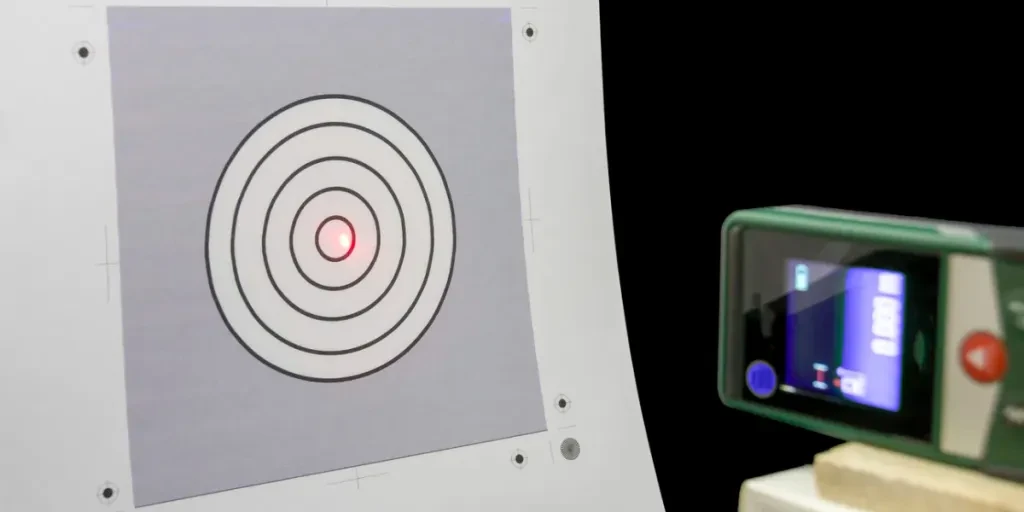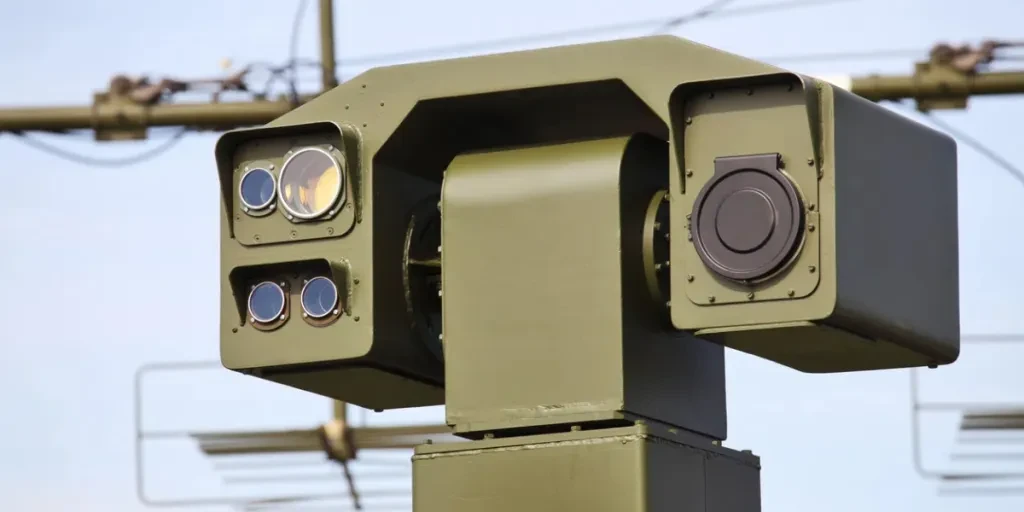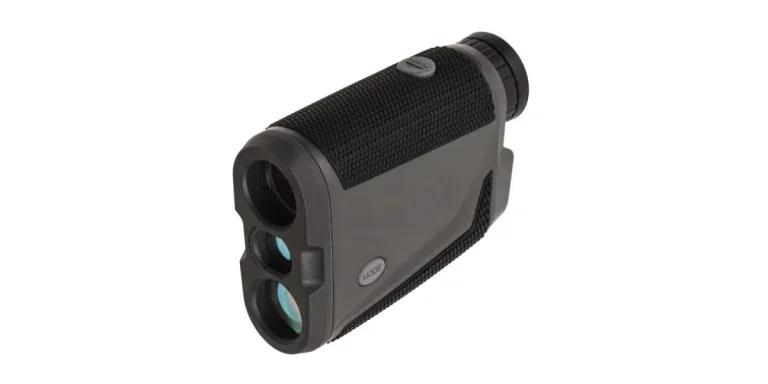Range finders have become indispensable tools in various industries, from sports to construction. These devices, which measure the distance between the user and a target, have evolved significantly over the years, incorporating advanced technologies to enhance accuracy and functionality. This article delves into the current market landscape of range finders, highlighting key players, market growth, and future projections.
Table of Contents:
– Market Overview
– Technological Features Revolutionizing Range Finders
– Design and Functionality Trends
– Performance and Durability
– Benefits for Business Buyers
Market Overview

Current Market Landscape
The global range finders market has seen substantial growth in recent years, driven by technological advancements and increasing demand across various sectors. According to a report by Research and Markets, the global range finders market was valued at USD 3.15 billion in 2023 and is projected to reach USD 11.01 billion by 2030, growing at a CAGR of 19.54%. This growth is attributed to the rising adoption of range finders in sports, construction, and military applications.
In the sports industry, particularly golf, range finders have become essential tools for both amateur and professional players. The global golf range finders market alone was valued at USD 351.78 million in 2022 and is expected to grow at a CAGR of 9.2% through 2028. This growth is fueled by the increasing popularity of golf and the desire for improved precision and accuracy among golfers.
Key Players and Competitors
The range finders market is highly competitive, with several key players dominating the landscape. Companies such as Bushnell by Vista Outdoor Inc., Nikon Corporation, and Garmin Ltd. are leading the market with their innovative products and advanced technologies. These companies focus on enhancing the accuracy, battery life, and durability of their range finders, as well as integrating additional features such as slope compensation and weather resistance.
Bushnell, for instance, is renowned for its high-quality laser range finders, which are widely used in golf and hunting. Nikon Corporation offers a range of optical and laser range finders that cater to various industries, including sports, construction, and photography. Garmin Ltd. is known for its GPS-based range finders, which provide comprehensive course information and shot tracking capabilities.
Market Growth and Projections
The range finders market is expected to continue its robust growth trajectory in the coming years. According to a report by Research and Markets, the market is projected to grow at a CAGR of 19.54% from 2023 to 2030, reaching USD 11.01 billion by the end of the forecast period. This growth is driven by several factors, including the increasing demand for precision and efficiency in various industries, technological advancements, and the rising popularity of outdoor sports.
In addition to the sports industry, the construction and military sectors are also significant contributors to the market’s growth. In construction, range finders are used for site surveys, layout planning, and ensuring that structures are built to precise specifications. In the military, range finders are critical for targeting and reconnaissance, providing soldiers with the ability to determine the exact distance to a target.
The market is also witnessing a shift towards more affordable and user-friendly range finders, making them accessible to a broader range of consumers. This trend is expected to further drive the market’s growth, as more individuals and businesses adopt range finders for various applications.
Technological Features Revolutionizing Range Finders

Advanced Laser Technology
The integration of advanced laser technology in range finders has significantly enhanced their performance and reliability. Modern range finders utilize high-precision lasers to measure distances with remarkable accuracy. This technology allows for quick and precise readings, which is crucial in various applications such as golfing, hunting, and surveying. According to a professional report, the latest range finders can measure distances up to 1,000 meters with an accuracy of ±1 meter. This level of precision is achieved through the use of sophisticated laser diodes and sensors that can detect even the slightest variations in distance.
Integration with GPS and Mapping Systems
The integration of GPS and mapping systems into range finders has opened up new possibilities for users. This feature allows range finders to provide not only distance measurements but also geographical data, making them invaluable tools for outdoor activities such as hiking, hunting, and golfing. Reported by a recent study, some range finders now come equipped with built-in GPS modules that can geo-tag locations and provide real-time mapping information. This integration enhances the user experience by offering a comprehensive view of the terrain and helping users navigate more effectively.
Enhanced Accuracy and Speed
The advancements in technology have also led to improvements in the accuracy and speed of range finders. Modern range finders are equipped with high-speed processors that can quickly analyze data and provide instant readings. This is particularly important in dynamic environments where quick decision-making is crucial. For instance, in golfing, a range finder that can provide accurate distance measurements in a matter of seconds can significantly improve a player’s performance. Additionally, the use of advanced algorithms and sensors has minimized errors and increased the reliability of these devices.
Design and Functionality Trends

Ergonomic and User-Friendly Designs
The design of range finders has evolved to become more ergonomic and user-friendly. Manufacturers are focusing on creating devices that are comfortable to hold and easy to operate. This trend is evident in the use of lightweight materials and compact designs that make range finders more portable. According to industry experts, the latest models feature intuitive interfaces with simple controls, allowing users to operate them with minimal effort. This is particularly beneficial for outdoor enthusiasts who need to use range finders in challenging conditions.
Compact and Lightweight Models
The demand for compact and lightweight range finders has been on the rise, driven by the need for portability and convenience. Modern range finders are designed to be small enough to fit in a pocket or a small bag, making them easy to carry around. This trend is supported by advancements in miniaturization technology, which has allowed manufacturers to pack powerful features into smaller devices. A professional report shows that some of the latest range finders weigh as little as 150 grams, making them ideal for activities such as hiking and golfing where every ounce of weight matters.
Multi-functional Range Finders
The trend towards multi-functional range finders is gaining momentum, with manufacturers incorporating additional features to enhance their utility. Modern range finders often come with built-in compasses, inclinometers, and even weather sensors. These additional features make range finders versatile tools that can be used in a variety of situations. For example, a range finder with an integrated compass can help hikers navigate through unfamiliar terrain, while a built-in inclinometer can assist golfers in measuring the slope of the ground. This multi-functionality adds value to the devices and makes them more appealing to a broader audience.
Performance and Durability

High-Performance Optics
The quality of optics used in range finders has a significant impact on their performance. High-performance optics ensure clear and sharp images, which are essential for accurate distance measurements. Modern range finders are equipped with multi-coated lenses that enhance light transmission and reduce glare, resulting in better visibility even in low-light conditions. According to a recent study, the use of high-quality optics has improved the overall performance of range finders, making them more reliable and effective in various applications.
Weather-Resistant and Rugged Builds
Durability is a key consideration for range finders, especially for those used in outdoor environments. Manufacturers are now focusing on creating weather-resistant and rugged range finders that can withstand harsh conditions. Reported by industry experts, the latest models feature robust construction with water-resistant and shockproof designs, ensuring they can endure extreme weather and rough handling. This makes them suitable for activities such as hunting, hiking, and surveying, where the devices are exposed to challenging conditions.
Battery Life and Power Efficiency
Battery life and power efficiency are critical factors for range finders, particularly for those used in remote locations where access to power sources is limited. Modern range finders are designed to be energy-efficient, with advanced power management systems that extend battery life. Some models are equipped with rechargeable batteries, while others use standard batteries that can last for several months on a single charge. According to a professional report, the latest range finders can operate for up to 400 hours on a single set of batteries, making them reliable tools for extended use.
Benefits for Business Buyers

Cost-Effectiveness and ROI
For business buyers, the cost-effectiveness and return on investment (ROI) of range finders are important considerations. Investing in high-quality range finders can lead to significant cost savings in the long run. These devices can improve efficiency and accuracy in various applications, reducing the need for additional equipment and labor. According to industry experts, the use of range finders in construction and surveying can result in a 20% increase in productivity, translating to substantial cost savings and higher ROI.
Customization Options for Different Needs
Business buyers often have specific requirements that need to be addressed. Modern range finders offer customization options that allow businesses to tailor the devices to their specific needs. Manufacturers provide a range of features and accessories that can be added to the base models, such as different types of lenses, mounting options, and software integrations. This flexibility ensures that businesses can choose the right range finders that meet their unique requirements, enhancing their overall efficiency and effectiveness.
Enhancing Customer Satisfaction
Providing high-quality range finders can enhance customer satisfaction by offering reliable and accurate tools that meet their needs. Businesses that invest in advanced range finders can offer better services to their clients, whether it’s in construction, surveying, or outdoor activities. According to a recent study, customers who use high-quality range finders report higher levels of satisfaction and are more likely to recommend the products to others. This positive feedback can lead to increased sales and a stronger reputation for businesses that offer these devices.
Conclusion
The range finder industry is experiencing a technological revolution, with advancements in laser technology, GPS integration, and enhanced accuracy leading the way. The focus on ergonomic designs, compact models, and multi-functionality is making these devices more user-friendly and versatile. High-performance optics, weather-resistant builds, and improved battery life are enhancing their durability and reliability. For business buyers, the cost-effectiveness, customization options, and potential to enhance customer satisfaction make range finders a valuable investment.




